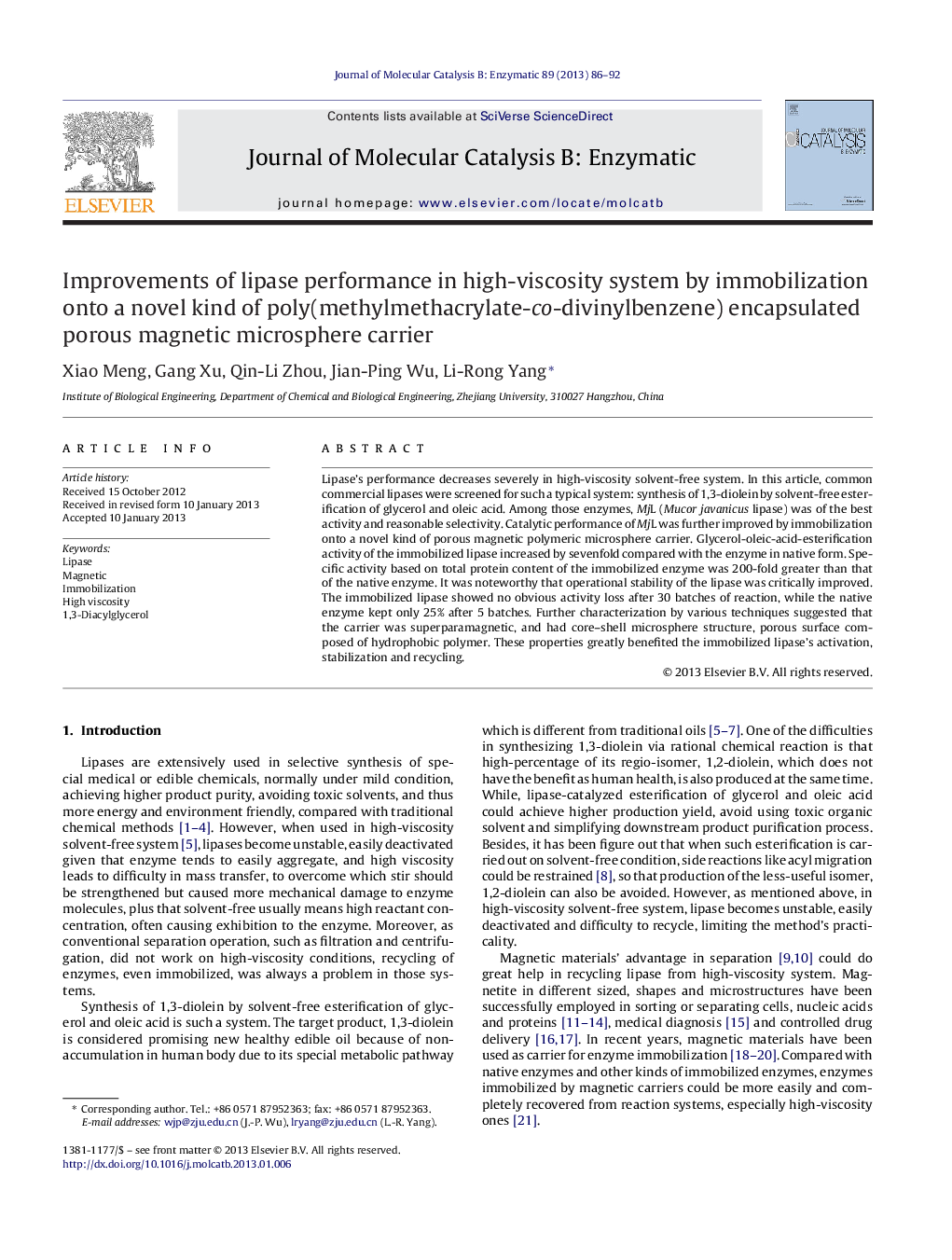| Article ID | Journal | Published Year | Pages | File Type |
|---|---|---|---|---|
| 70027 | Journal of Molecular Catalysis B: Enzymatic | 2013 | 7 Pages |
Lipase's performance decreases severely in high-viscosity solvent-free system. In this article, common commercial lipases were screened for such a typical system: synthesis of 1,3-diolein by solvent-free esterification of glycerol and oleic acid. Among those enzymes, MjL (Mucor javanicus lipase) was of the best activity and reasonable selectivity. Catalytic performance of MjL was further improved by immobilization onto a novel kind of porous magnetic polymeric microsphere carrier. Glycerol-oleic-acid-esterification activity of the immobilized lipase increased by sevenfold compared with the enzyme in native form. Specific activity based on total protein content of the immobilized enzyme was 200-fold greater than that of the native enzyme. It was noteworthy that operational stability of the lipase was critically improved. The immobilized lipase showed no obvious activity loss after 30 batches of reaction, while the native enzyme kept only 25% after 5 batches. Further characterization by various techniques suggested that the carrier was superparamagnetic, and had core–shell microsphere structure, porous surface composed of hydrophobic polymer. These properties greatly benefited the immobilized lipase's activation, stabilization and recycling.
Graphical abstractFigure optionsDownload full-size imageDownload as PowerPoint slideHighlights► It was the first time that surface modified magnetic carrier was employed for lipase immobilization in high-viscosity system. ► The carrier had advantages of both hydrophobic hyperactivation effect on lipase and magnetic material's convenience of separation. ► The immobilized Mucor javanicus lipase's activity increased by sevenfold. ► The immobilized lipase was able to be reused for 30 batches, while the native enzyme can only be used less than 5 batches.
